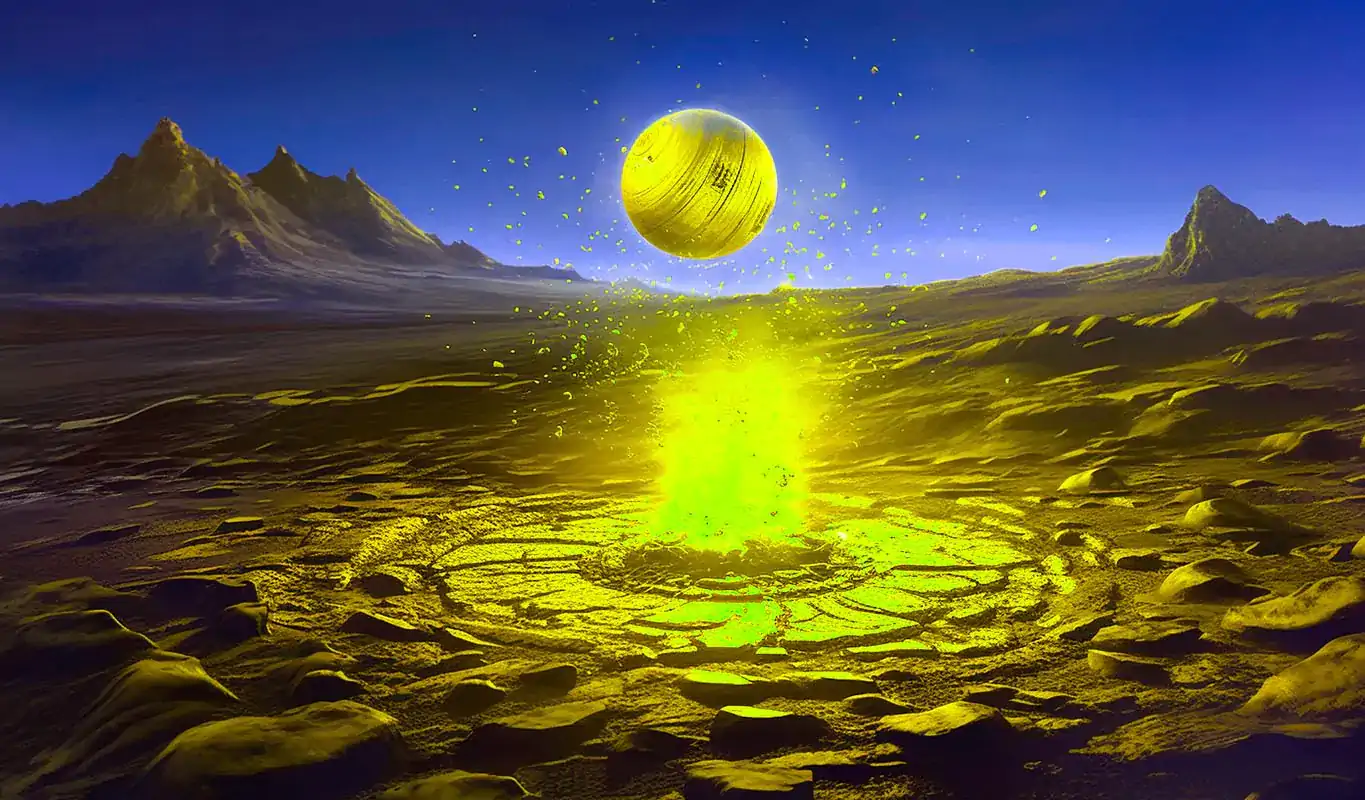Crypto bro.




 EN
EN
 RU
RU
 TR
TR
 KO
KO
 DE
DE
 BN
BN
 ES
ES
 HI
HI
 ZH
ZH
 VI
VI
 FR
FR
 PT
PT
 JA
JA



People Mentioned


Tech Bro
@techbro


Jack Dorsey
@jackdorsey



@cryptobro
Crypto BroCrypto bro.
Receive Stories from @cryptobro
Crypto bros have a collection of digital art, Bitcoins as their main currency, and a belief that the future is the Web3. In this article, I want to break down the terminology, explore memes, and search for the line between fascination and absurdity.
Intro
Beginning crypto investors are increasingly being called "crypto bros" - they become the heroes of absurd news and objects of ridicule on social networks. Over the past year, an image has emerged of a person who invests in Bitcoins, buys NFTs, and organizes decentralized projects but does it all with the mentality of a "bro" - reckless, self-assured, and with no tolerance of any criticism.
Accounts dedicated to the failures of crypto bros are appearing online. Their satirical images have already started to be used in pop culture, and users joke that they "can always be cyberbullied." Let's find out who crypto bros (or cryptobros) are, where they came from, and why they are subjected to ridicule online.
Tech Bro Is the Big Brother of Crypto Bro
In Urban Dictionary, the term "techbro" (tech bro) first appeared in 2013. As Wired notes, the word originated from the culture of the "bro", an American college student who is a member of a "fraternity" (a student organization living in the same house).
Often in pop culture, "bros" are portrayed as white, masculine, not-so-academically successful guys who love partying, beer, and sports and are pretty dismissive of women. An entire subgenre of movies has emerged based on this idea.
"Bro" at a college party. A still from the movie "22 Jump Street".
A tech bro is a person who graduated from university and went to work for one of the wealthy tech companies, usually in Silicon Valley. In pop culture, tech bros are described as engineers or other IT companies employees interested in Bitcoin, founding weird startups, and bicycling. They are usually not in romantic relationships because of their condescending attitudes toward women or low social skills.
At the same time, tech bros are also accused of starting the process of gentrification (redevelopment of "poor" neighborhoods through beautification to attract wealthy residents) in the San Francisco Bay Area (Silicon Valley is nearby), which caused housing costs to skyrocket.
A typical tech bro is Russ Hanneman, the hero of the Silicon Valley series.
In the media, the term became widespread in 2017 when Google engineer James Damore was fired for a manifesto in which he argued that gender inequality in the workplace was due to biological differences. Damore anonymously distributed a document in which he argued that women are "more interested in feelings than ideas", "more likely to agree on everything", and "suffer from neuroticism."
So, they are slower to advance in their careers than men. It was hard to find an article in the media that didn't call him a tech bro.
As a result, the term acquired a mocking connotation - it began to be applied to employees of the IT industry who behave unusually or get into ridiculous scandals. Snapchat co-founder Evan Spiegel was labeled as such after his emails leaked online, which he wrote to friends at university with content like "I hope at least six girls sucked your dick yesterday."
Former Twitter CEO Jack Dorsey was also branded a tech bro after he revealed he was "biohacking" - eating once a day and taking ice baths.
Ironic articles appeared in the media with advice on how to date the tech bro: don't accuse him of gentrification, be sure to criticize Facebook, and ask him what startup he wants to found. Others drew attention to the style of dress of tech bro, set by Steve Jobs and different from typical businessmen: no suits, just jeans, sweatshirts, sneakers, monochrome colors, and zippered vests with their company badges.
Tim Cook wearing a vest from Patagonia, a popular brand among tech bros
As a result, "tech bro" has become a term used in relation to anyone in the IT industry when they want to criticize them. In 2019, Seattle-based publication SeattleMet wrote an "obituary for the tech bro", stating that the term has "lost all relevance" because it "alienates the very people we're trying to get more inclusion from.” However, the term is occasionally used to this day.
The Birth of Crypto Bro
With the popularity of Bitcoin, it wasn't enough to just be "tech bros" - there were more and more young investors who became interested in cryptocurrencies in pursuit of easy money. In 2017, they were called Bitcoin bro, and then the broader term “crypto bro" spread.
At that time, it was believed that a typical representative of crypto bros demonstratively calls himself an entrepreneur, brags on social networks about how much he earned from cryptocurrency, idealizes Elon Musk, dreams of colonizing Mars, and is interested in virtual reality.
The Lamborgini car became a status symbol among cultural representatives. Investors ironically calculated how many Bitcoins were needed to buy it, and the phrase "When Lambo?" was used in memes.
The first Bitcoin millionaires bought expensive sports cars to prove to the whole world that cryptocurrencies are not scams and that it is really possible to get rich with them.
As in the tech bro culture, most crypto bros are men. The New York Times reported that parties after Bitcoin conferences were held in strip clubs, and startups were advertised with bikini-clad girls. Female investors have spoken out against bro-culture in the blockchain community, pointing out that it, too, has few women, just like IT companies.
Crypto bros do not agree with tech bros, perhaps only in political views: if the latter do not adhere to a certain ideology, the former are equated with libertarians. Crypto enthusiasts also believe that the monetary system should be free from centralized oversight and that the people, not the authorities, should make decisions.
The term "crypto bro" became more mainstream amid the spikes and drops of Bitcoin in 2018. Back then, many analysts warned of a "financial bubble" while crypto bros scoffed at them and urged them to buy Bitcoins on the fall. When the rate did collapse, social networks ironized over crypto investors who tried in every possible way to justify the unexpected market crash.
What Does a Modern Crypto Bro Look Like?
Interest in Bitcoin waned after a sharp drop in the exchange rate, but 2021 brought cryptocurrencies back into the spotlight.
The entire year was accompanied by the rise of Bitcoin, the massive proliferation of NFTs, interest in meme cryptocurrencies like Dogecoin, tech companies' belief in developing meta-universes, and attempts to create decentralized communities in pursuit of Web3. During this period, the term gained widespread popularity.
Due to new trends, the image of cryptocurrency brokers has also changed - they are now seeking decentralization and anonymity, exploring meta-universes, and investing in altcoins, such as Ether. They no longer seek to get rich quickly by trading but more often "hold" cryptocurrency regardless of the market situation, waiting for the rate to “fly to the moon.”
Cryptobro differs from a simple crypto investor in that he does not just buy Bitcoins, invest in NFT, and dream of a new Internet in virtual reality, but is sincerely convinced that he is on the cutting edge of progress and will drive global changes in the whole society with his actions. Cryptobro also tries to convince everyone who is willing to listen to him of this.
Cryptocurrency idols also gradually changed. Elon Musk began to lose popularity. Although the entrepreneur was praised for "raising Dogecoin to the moon" with a single tweet, many people did not like this tactic when he similarly "collapsed" the Bitcoin rate. Crypto bros accused the head of Tesla of market manipulation.
The place of the idol of crypto bros was taken by the president of El Salvador Nayib Bukele, who achieved the recognition of Bitcoin as the official currency in the country and then purchased 1,801 bitcoins for $85 million with budget money.
Crypto-subreddit users wrote him open letters, called him a hero, praised him for "giving money away to citizens", and supported him even after the country's budget lost 20% of its investments due to the Bitcoin crash.
While for Musk, cryptocurrencies were limited to Twitter entertainment, Bukele has shown that he takes them seriously.
Due to overconfidence in the future success of cryptocurrencies and, at the same time, ignorance of the rules of investing, the behavior of crypto bros began to be ridiculed more often in social networks: novice investors do not understand that you have to pay taxes for buying Bitcoin, they delete posts on social networks about their "successful transactions" to hide evidence from regulators, or they ask random people what coins to buy.
The social media's lenient attitude toward crypto bros is also because more and more scammers have appeared in the wave of "meme" cryptocurrencies. They release cheap coins with small capitalization, lure investors, and hide with eight-digit amounts of dollars at the rate's peak.
After this, the coin's value falls sharply. Such a scheme is called "pump and dump."
This scheme was used to sell fake cryptocurrency on "The Squid Game", the "antique" version of Dogecoin, and even the coin Jizz Monkey. Fraudulent cryptocurrencies have reached such proportions that Kim Kardashian and Floyd Mayweather were sued for advertising such things.
In addition to outright scamming, crypto bros raise money for some pretty questionable things, often without knowing the purpose for which they are trying to buy something. For example, crypto bros:
- Sold plots on the "paradise island" of Cryptoland using other people's assets and blocking all critics but lost an auction to buy the real island.
- Tied to buy a rare copy of the U.S. Constitution at auction (for no particular purpose - they decided to give voting rights to participants after the purchase), raised over $40 million, lost the auction, but couldn't withdraw the money due to blockchain commissions.
- Spent $3 million on a book with storyboards of Alejandro Chodorowsky's unfilmed "Dune" and decided to make a TV series based on it for Netflix, thinking they had acquired the rights to adapt the work.
- Tried to buy a record-sized cube of tungsten to look at and touch once a year.
Also, because of the image of cryptocurrencies, many people began to doubt cryptocurrencies as an idea. On Reddit, they note that Bitcoin, conceived as an alternative currency for everyday payments, has become a "speculative asset with fluctuating rates". In addition, critics of cryptocurrencies are also outraged that crypto miners are wasting electricity just to "crunch the numbers" and maintain the level of trust in the cryptocurrency.
NFT Bro - Crypto Bro's Little Brother
It was originally envisioned that NFTs would help artists make money from their art, who would directly sell their work through blockchain. Buyers would become kind collectors of digital art and could earn on the resale of "artifacts.”
NFT (non-fungible token) is a virtual digital unit in the blockchain network, a unique certificate that guarantees the originality of the object and gives exclusive rights to it. To be an NFT collector is to philosophically accept the idea that you "own" all similar JPEGs distributed on the network.
However, it wasn't artists who took over the market. Initially, heroes of forgotten memes, stars, and brands started to profit from selling NFTs, and then fraudsters penetrated the market.
Marketplaces were flooded with art stolen from little-known artists, as well as copies of popular NFT collections. It got to the point where two projects completely copied the mirror collection of Bored Apes, and then started arguing about which of them was the "real" one.
In addition to stealing content, NFT enthusiasts are occasionally accused of money laundering. Suppose a purchase is made by transferring Ethereum from one anonymous wallet to another. In that case, nothing stops them from transferring money to themselves, passing it off as a digital art transaction to the tax authorities.
In some cases, crypto investors pay millions of dollars to "NFT artists" who hide with the money and do not even release art. Social networks wonder how one can trust the promises of creators of anonymous projects. Sometimes, celebrities appear to ignorantly promote NFTs that end up being scams.
Critics who see the virtual items market as meaningless or even fraudulent have named enthusiasts as NFT bros. Usually, representatives of such culture put their digital artifacts (most often looking like colorful animals) on their avatars in social networks, see their purchase as the future, and try to convince critics that they cannot realize the real value of owning digital content.
After all, a postcard with a copy of the Mona Lisa cannot be equated with the original painting.
In response, NFT bros have named their critics "right clickers" for taking screenshots of purchases from marketplaces or just right-clicking saves. Crypto-enthusiasts consider the term "right clicker" offensive, though their critics only laugh it off.
Periodically, NFT bros demand that screenshots be deleted and advocate banning the saving of pictures on marketplaces or even on Twitter, which has allowed digital artifacts to be put on avatars.
In social networks, the image of NFT bro has developed around people who invest all their money in digital artifacts, blindly believing that they will someday pay off. An illustration of this behavior was a Reddit user who gave his girlfriend an NFT instead of an engagement ring, spending his entire life savings on it.
Because of cases like this, NFT bros are portrayed as obsessed fanatics who are willing to buy up any digital artifacts in hopes of speculating on the market in the future. And even crypto bros criticize them for hoping too much for the success of NFT.
Leopold "Butters" Stotch persuades a fast food chain to release the NFT. A still from a special episode of "South Park"
Conclusion
Pejorative terms for cryptocurrencies and their other "brethren" have arisen as a reaction to distrust of digitalization. Cryptocurrencies are called pyramid schemes, NFTs are considered meaningless and speculative, and meta-universes are not developed enough for continuous use.
But who knows, perhaps while Twitter is mocking the crypto bros' next failures, they are actually paving the way for the future, teaching others from their own mistakes.
The Opt Out Writing Contest is sponsored by Aut - a collective building decentralized standards for self-sovereign Identity (SSID, IAM), Reputation and Communities (DAOs, Hacktivists, Network States, etc.). A laboratory of experimentation, pushing the boundaries imposed by the status quo. Our protocols are designed to implement autonomy and personal freedom at a systemic level - in an effort to accelerate the transition from hierarchical power structures, to self-organizing forms of coordination. Opt out of the system that doesn’t represent you!
Writing Contests 4 Web3 Hactivists: Win $9k!
RELATED STORIES












 BlocksInform
BlocksInform






















